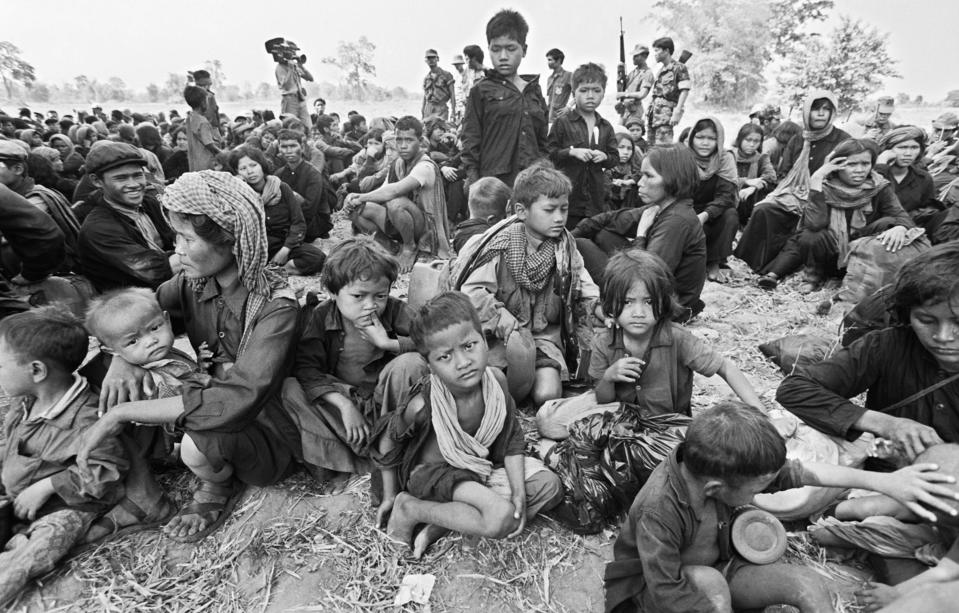New York, Iraq, Myanmar: The endless calamity of religious war

If there was any comfort to be had in the wake of the shooting at a Texas church Nov. 5 that killed 26 worshippers, it was that this latest atrocity, coming just a week after an immigrant from Uzbekistan was charged with running over 20 people on a crowded Manhattan bicycle path, had nothing to do with ISIS. Recent history has given us all too many illustrations of the aphorism coined by the Nobel Prize-winning physicist and outspoken atheist Steven Weinberg: “With or without religion, good people can behave well and bad people can do evil; but for good people to do evil — that takes religion.”
Weinberg, writing two years before the 9/11 attacks, based his conclusion on evidence that had been accumulating more or less since the dawn of history, mentioning in particular Frederick Douglass’s observation that his own situation as a slave “became worse when his master underwent a religious conversion that allowed him to justify slavery as the punishment of the children of Ham.” It’s unlikely that anything going on in the world now would give him reason to change his mind, in a year when terrorists have struck New York, London and Paris in the name of Islam, while more than a half-million Muslims have been driven from their homes in Myanmar by Buddhists.

Weinberg was writing about how zealotry can turn even good people into monsters. The man who shot up the church in Sutherland Springs appeared to be acting out of a personal grievance, to the extent that it makes sense to even attribute a motive to such an act, and what we know of his background, including convictions for domestic violence, is damning. But the head of state of Myanmar, Aung San Suu Kyi, had a reputation as a very good person, winner of the Nobel Peace Prize for her long struggle to bring democracy to her country. It is uncertain how much control she exercises over the powerful Myanmar military. But on the face of it, she has been either complicit or at best indifferent to the ethnic cleansing underway in Rakhine province, a brutal campaign characterized by murder, forced evacuations and the burning of houses. The victims are members of a minority ethnic group, the Rohingya, who are guilty of belonging to a religion that is not Buddhism.
It is shocking, of course, that these atrocities have been perpetrated by co-religionists of the Dalai Lama. But it sheds a clarifying light on the debate over the nature of Islam — is it a religion of war or of peace? — that crops up after every atrocity, a pointless exercise of quoting competing passages from the Koran and the Hadith. One side may quote the fierce injunction of Surah 9, verse 123, (“O ye who believe! Fight such of the disbelievers as are near to you and let them find hardness in you…”), which certainly sounds like a justification for running down pedestrians with a truck. The other side may bring up 2:257 (“There should be no compulsion in religion…”), a call to tolerance regrettably undermined by the fact that 13 mostly Muslim countries, including Iran, Pakistan, Saudi Arabia and the United Arab Emirates, have laws that treat atheism as a crime punishable by death.

As Ali Rizvi, author of “The Atheist Muslim,” points out, this is an unpopular view among progressives, who are inclined to defend the typically dark-skinned, historically oppressed adherents of Islam. So I will attempt to defuse that criticism by stipulating that other religions are capable of behaving just as badly. Sam Harris, author of “The End of Faith,” calls the war on the Rohingya “an absolutely horrific example of tribal violence,” although he thinks it would be very much worse if Buddhism, like Islam, contained within it doctrines that explicitly justify violence. In its literature and teachings and everyday practice, Buddhism really is a religion of peace. But confronted by a competing faith within its own borders, its adherents take on the same defensive, suspicious and ultimately violent characteristics as Muslims, Hindus, Jews or Christians. Religion divides people. You are either one of the chosen people, or you are not. You either accept Jesus as your savior, or you don’t. These are distinctions that many believers treat as a matter of life or death.
How much blood was shed over the centuries in wars between Catholics and Protestants? How many were killed in the brutal fighting between Muslims and Hindus at the birth of India and Pakistan, and still more in the occasional clashes that have continued since then, even as both countries have armed themselves with nuclear bombs? How many are still dying in the Middle East in fighting between Muslims and Jews, and the endless exchange of car and suicide bombings between Sunni and Shia, carrying on a schism that dates back to the seventh century? “That so many of us are still dying on account of ancient myths is as bewildering as it is horrible,” Harris has written, “and our own attachment to these myths, whether moderate or extreme, has kept us silent in the face of developments that could ultimately destroy us.”
Of course, the lesson of the 20th century is that people make war for all sorts of reasons. The Hutus of Rwanda worked themselves up into a genocidal frenzy against the Tutsis without needing the excuse of religious differences. The worst deeds of ISIS and al-Qaida are but footnotes to the volumes of misery inflicted on their own citizens by the atheistic governments of the Soviet Union, communist China and Pol Pot’s Cambodia. Religion is just one more thing for people to fight about, but a particularly galling one because it holds itself out as the opposite. Every religion contains prayers for peace, but was a war ever stopped by religion?

Rizvi believes Islamic terror will be defeated not by waging war on it, nor by the peaceful camp of Muslims winning the argument with the radicals over the meaning of the Koran, but by more Muslims embarking on the intellectual passage he describes in the subtitle of his book, “A Journey From Religion to Reason.” The Western world has been on that journey since the Enlightenment, leading to what has been described as a post-Christian society in Western Europe, where almost no one, except Muslims, cares enough about his religion to want to kill for it.
To reach that point took several centuries from Locke and Voltaire, Rizvi notes, but that was in a world where ideas spread by the relatively inefficient media of books, tracts and speeches. There are powerful forces within Islam working against an Islamic Enlightenment, Harris contends, but there is reason to hope they are fighting a rear-guard action. As Maryam Namazie, the Iranian human rights activist has said, “The internet is doing to Islam what the printing press did in the past to Christianity.”
Or maybe we can pray for a deus ex machina. If God really does love the world, this would be a good time for him to send down the messiah he’s been promising for 2,500 years. Or else come down from the heavens as he did routinely in biblical days and tell the world what an increasing number of people have come to suspect anyway: that he doesn’t actually exist.
Read more from Yahoo News:




